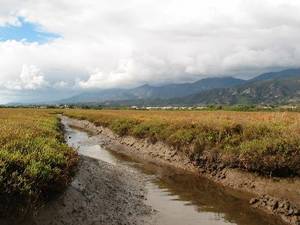It will soon be two years since the Deepwater Horizon oil spill in the Gulf of Mexico, and there is still a lot of concern over the impact it's had on marine and coastal ecosystems in the region.

A new study just out suggests that communities of small critters living in coastal salt marshes are vulnerable to oil exposure but at the same time quite resilient; and, so long as the plants they live in remain healthy, they can recover within a year.
As the oil swept across the Gulf back in 2010, Brittany McCall and Steven Pennings from the University of Houston in the US, went out and studied populations of crabs, snails, insects and spiders inhabiting ten salt marshes in Louisiana and Mississippi in areas subject to relatively low levels of oil contamination.
Compared to oil-free control sites, the abundance of salt marsh invertebrates in the oiled sites was around 50% lower, with the exception of the marine snail, Littorina, which was unaffected by the oil.
But, the good news is that, after a year, populations of all of the animal species studied had recovered.
This suggests that, even at low-levels of oil contamination, salt march inhabitant are impacted in the short term by lower levels of pollutants. Longer term, however, they do appear to be able to bounce back...
- Previous You are (the colour of) what you eat
- Next Speech stopping ray










Comments
Add a comment